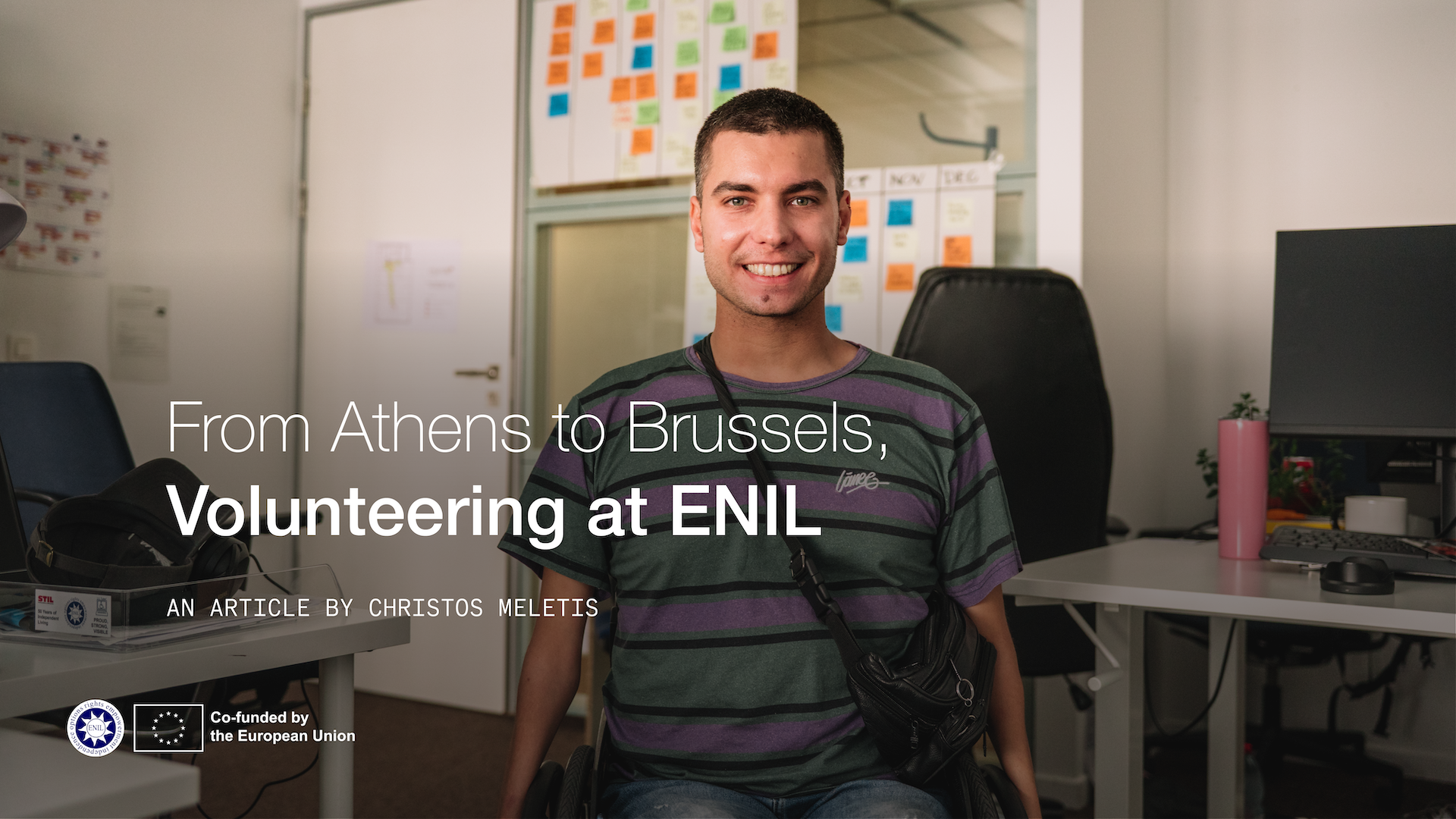A ongoing survey indicates various de-facto and legal barriers prevent disabled people from voting and standing for office in the European Elections. We need full deinstitutionalisation, the abolishment of guardianship regimes and accessible electoral processes to induce a change.
From the 6th to the 9th of June 2024, 350 million citizens will be eligible to vote in the European Elections, making it one of the largest democratic exercises in the world. 87 million EU citizens are disabled. To which extent will they be able to participate?
The right to participate legally and in practice
Political participation of disabled people is a right enshrined in Article 29 of the United Nations Convention on the Rights of Persons with Disabilities (UN CRPD). Nevertheless, disabled people still face significant barriers inhibiting their right to participate in the European Elections. Two important barriers are confinement to institutions and legal guardianship. The European Economic and Social Committee estimates that 400 000 disabled peole were excluded from the last European elections in 2019 because they were placed under guardianship. Research shows that in many EU countries voting or standing as a candidate is inaccessible for disabled people. The European Network on Independent Living (ENIL), the Validity Foundation and Covington & Burling LLP are currently running a litigation campaign which you can join to challenge this situation.
The Independent Living Survey 2023
ENIL wanted to know which barriers members of the Independent Living Movement are experiencing. In November-December 2023 we published a questionnaire and shared it with disabled people who are knowledgeable on the matter. The results are online.
Active political participation
Of the 38 responses received, most participants had a physical and or neurodivergent impairment. When asked about their personal situation, 50% of respondents said that they encounter barriers, making voting more difficult. Among the proportion of respondents who encounter difficulties in voting, 61,9% are being hindered by de-facto barriers, for example polling stations are inaccessible or it is not allowed to bring one’s personal assistant. Some said that because of their impairments, it was not possible for them to stand for long periods of time while waiting in line. Only 2 respondents reported legal barriers which can be explained by the fact that only one person with an intellectual impairment, a group frequently affected by guardianship regimes, filled out the questionnaire. To our knowledge, no residents of institutions joined the survey. Since our survey did not reach these two groups who are the most affected by barriers preventing political participation, it might see the situation as better than it is.
Passive political participation
When it comes to personal prospects of becoming a politician, respondents were even more pessimistic. 78% said running for office would bring major difficulties. Only 13,9% say it would be easy. Those figures are alarming. At the moment, only 7 out of 705 MEPs the entire European Parliament is disabled. This gross underrepresentation of disabled people obscures our significance for society and makes it more difficult to strive for ambitious policies.
The situation in general
When asked to rate the situation of disabled people in general, respondents were far less optimistic than about their personal situation. 64% said voting is somewhat or very difficult for disabled people. These figures suggest an urgent need for further reform. When asked as to why voting was so complicated, 12,5% cited legal barriers and 37,5% a mix of legal and de-facto barriers. Confinement to institutions or being under guardianship were pointed out to be important legal barriers by various respondents. In many places, voting materials are still not available in easy to read or braille. Often there is no assistance for people with visual impairments or reading difficulties. Polling stations are still frequently inaccessible for wheelchair users. One respondent said that her personal assistant was so aggressively anti-EU that she was too scared to cast her vote. Dependence on assistance persons for ones´ personal safety, seems to be a factor.
When it comes to passive electoral participation, 97,3% of respondents indicated it is very difficult, somewhat difficult or impossible. These replies paint a bleak picture. The right to passive electoral participation seems to be a far off ideal.
As to why difficulties are so severe, lack of personal assistance support in running a campaign was mentioned as a barrier. The prejudices of non-disabled voters and parties, seem to be other factors. Most political parties are reluctant to propose disabled candidates. One respondent indicated that non-disabled people held the view that disabled people are ugly or have the intellect of children. The view that internalised ableism, disabled people thinking becoming politicians was not possible for them, was cited too.
Recommendations to policy-makers
One of the most important measures to be adopted to ensure participation of disabled people in the European Elections on an equal level with others is the removal of all legal restrictions. We need full deinstitutionalisation and the abolishment of guardianship regimes in favour of substituted decision making.
Respondents were adamant that full accessibility of the electoral process needs to become reality. This includes ballot stations, ballot sheets and electoral programs. Respondents pointed out that we needed stronger efforts to combat ableism and anti-disabled prejudice.
To increase the number of disabled candidates, a respondent suggested to introduce quotas.
A factor which is probably still underestimated is the strength in numbers the disabled community possess. Disabled people make up 24% of the EU population. If a significant number of disabled people anywhere would join the local political parties, those would have little choice than to propose some of them as candidates. Disabled people who have to means to go to local party meetings should make use of them.
Do you want to fill out the survey too? You can do so here.



